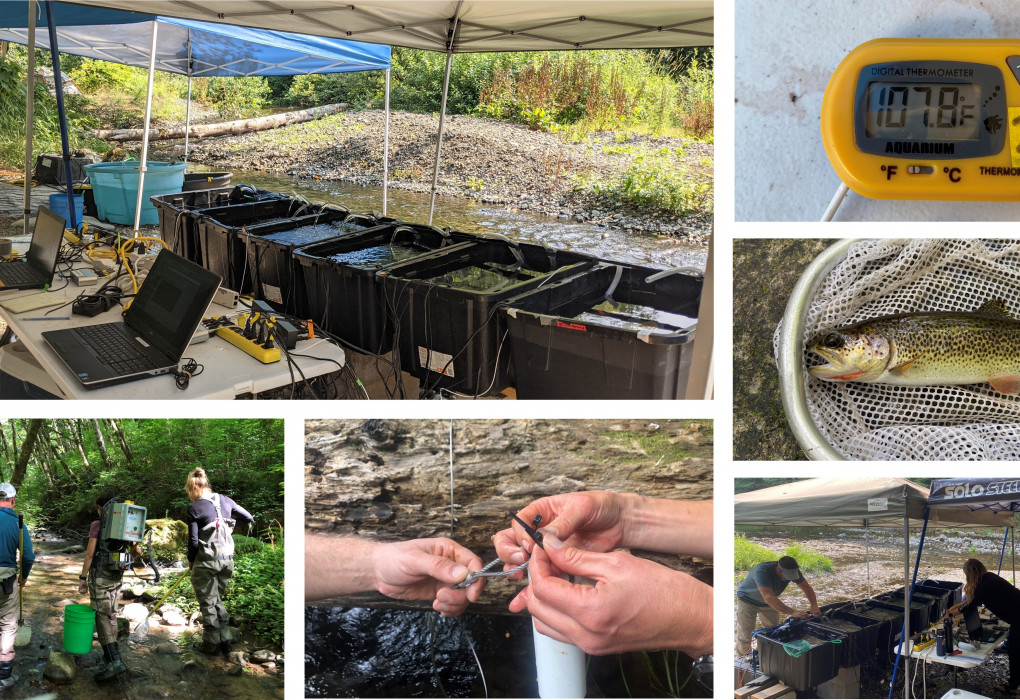McKenzie Chapter Update: ODFW Presentation in April & Future Meetings
On April 26, Oregon Department of Fish and Wildlife (ODFW) researcher Kara Anlauf-Dunn presented an excellent summary of her work studying temperature on native fish to the McKenzie Chapter at Ninkasi Brewing. Kara started by providing background information about how stream temperature is currently monitored in Oregon streams and what ODFW is doing to expand and improve those monitoring efforts. She then discussed how having a better understanding of where cold water refugia exist is a priority, as it allows ODFW and partner agencies to protect those areas and focus on fish passage projects that improve fish access to those locations.
Kara ended her presentation by giving an overview of the work she's completed on thermal tolerance across summer steelhead populations. Kara and her colleagues examined summer steelhead from the Siletz, North Umpqua, Deschutes, and John Day to test the hypothesis that fish from warmer rivers (the Deschutes and John Day) would have higher optimal, critical, and lethal temperatures than those from cooler rivers (the Siletz and the North Umpqua). However, they found that thermal tolerance was highly conserved in summer steelhead, with very little variation between even fish from the John Day and the Siletz. This contrasts with Kara's previous work on coastal Cutthroat Trout, where she found trout from cooler systems had correspondingly lower temperature thresholds than fish from warmer rivers.
Some take-home messages from Kara's talk for anglers include:
Monitor stream temperatures while angling and refrain from fishing when temperatures get high (a good cutoff for trout, salmon, and steelhead is 68F/20C).
If stream temperatures are high, don't fish in thermal refugia. Fish are there because they need a break and are trying to recover.
When we fish at high temperatures, we greatly increase their aerobic demand while we land them, putting them at greater risk of dying after release. Even fish that appear to swim away unharmed may later die or not have the energy reserves to spawn.
This summer, Kara will be studying the thermal tolerance of spring Chinook in the McKenzie basin. The McKenzie Chapter will likely be organizing a field trip to visit Kara's research site and will release info on how to join once we have it scheduled. All will be welcome to join!
The McKenzie Chapter encourages all anglers to monitor their local waterways and pay closer attention to stream temperature this summer through participation in their citizen science project. If you'd like to contribute, please click here for more details.
Lastly, please join us for the McKenzie Chapter meeting at Ninkasi's Better Living Room on May 31 at 5:30 pm as NFS Fellow Alex Worth leads us through a discussion of issues around wild versus hatchery fish. We especially encourage participation from non-anglers, so please bring your less-fishy friends with you for an eye-opening night of conservation conversation!
